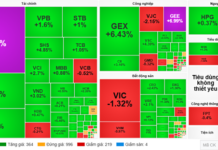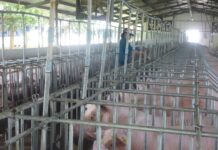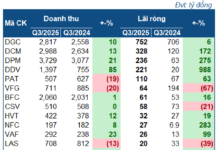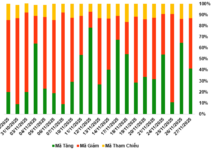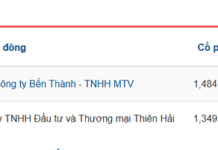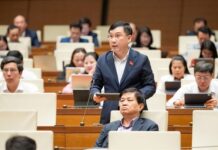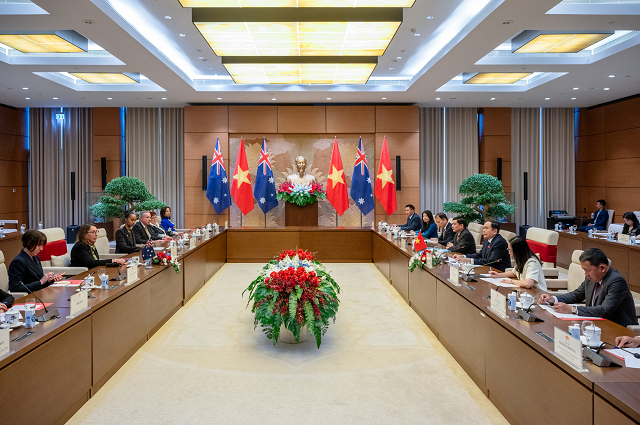On the morning of November 27th, the National Assembly held a plenary discussion on the draft amended Investment Law. Delegates focused on investment approval procedures, special investment procedures, and conditional business sectors.
Shifting to Risk-Based Governance
Delegate Lê Hoàng Anh (Gia Lai) highlighted the investment approval process as a critical factor in determining the speed and cost of capital flow. He proposed that amendments to approval regulations should be based on three pillars: “selective retention – principled elimination – risk-based design.”
He criticized the current system for applying uniform procedures to projects with varying risk levels, leading to unnecessary delays for low-risk projects and inadequate oversight for high-risk ones. “A nuclear power plant, with its extreme risks, undergoes the same approval process as a 5-hectare housing project, which poses lower risks and can be rectified if planning errors occur,” he noted.
“Many countries, such as Singapore and South Korea, have adopted risk-based governance. This draft law should follow suit,” he recommended.
He suggested retaining only eight high-risk cases related to national defense, security, severe environmental impact, and cultural heritage to protect core national interests. Additionally, he proposed streamlining the list of 21 items to 18 by removing overlaps with specialized laws, avoiding redundant pre-checks.
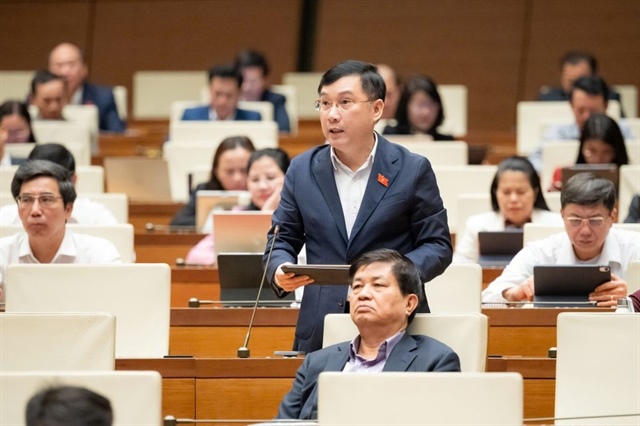
Delegate Lê Hoàng Anh speaks on Investment Law amendments. Photo: QH |
“Specifically, projects like airlines (already tightly regulated by the Aviation Law and ICAO standards) and Type I seaports (controlled by the Maritime Law) should be removed from Article 25, adhering to the principle of ‘one task – one time – one agency,'” Delegate Hoàng Anh stated.
He also advocated for flexible mechanisms for strategic projects in semiconductors, data centers, digital infrastructure, and renewable energy.
Delegate Hà Sỹ Đồng (Quảng Trị) expressed concern that Article 25 expands the scope of projects requiring approval to include commercial housing and urban areas regardless of size, leading to prolonged waits. He suggested limiting approval requirements to projects using land over 50 hectares or with populations exceeding 3,000, and exempting expansions under 20% from re-approval.
“The essence is to institutionalize investment freedom and reduce approval-seeking,” Delegate Hà Sỹ Đồng emphasized.
Drastically Reducing Conditional Business Sectors
Delegates drew on Resolutions 66 and 68 of the Politburo to discuss conditional business sectors.
Delegate Lê Hoàng Anh fully supported the government’s bold cuts but noted that further reductions were possible after reviewing Appendix IV. Some sectors, if subject to conditions, only require technical product standards, which do not need to be maintained at the law level.
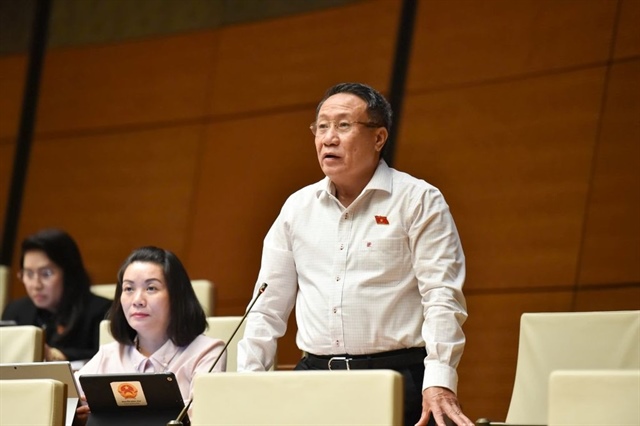
Delegate Hà Sỹ Đồng emphasizes ensuring investment freedom. Photo: QH |
“The food business category is overly broad; food safety standards are already covered by specialized laws. Similarly, e-commerce should not encompass logistics or small-scale payments; only large-scale platforms with consumer data should be regulated,” Delegate Lê Hoàng Anh said, identifying several sectors that could be removed from the list.
He argued that the list should only include high-risk sectors requiring legal control, with technical standards placed in subordinate legislation for quick updates. He proposed a three-year periodic review mechanism, with non-compliant sectors automatically expiring, following OECD and ASEAN practices.
He also suggested removing the phrase “other requirements” from Clause 6, Article 7 to prevent hidden sub-licenses.
Minister of Finance Nguyễn Văn Thắng explained that the Ministry, tasked by the Prime Minister, has rigorously reviewed and maximally reduced conditional business sectors. “The initial draft proposed cutting around 25 sectors, but further review suggests at least 50 sectors can be eliminated,” he stated.
He assured that after the law takes effect, the government will direct ministries to further amend business conditions, shifting to standard-based control to ensure full exercise of business freedom for citizens and enterprises.
Regulating E-cigarettes and Laughing Gas
Minister Thắng addressed investment approval procedures, noting that after group discussions, the drafting agency revised approval procedures for projects requiring special mechanisms or policies not covered by existing laws. The draft also addresses urgent, unexpected projects.
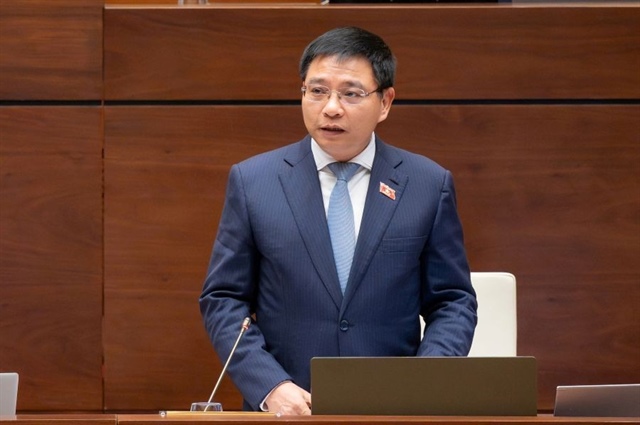 Minister of Finance Nguyễn Văn Thắng addresses delegates’ concerns. Photo: QH |
Regarding approval authority delegation, Law 90 (amending multiple investment and finance-related laws) already delegates authority from the Prime Minister to provincial People’s Committees for eight project groups, including those involving resettlement of over 10,000 people in mountainous areas or 20,000 elsewhere, or non-seaport projects.
“This draft law updates the Investment Law and Law 90, which are already in effect and being implemented smoothly,” the Minister noted, adding that other laws like the Planning Law are being amended similarly.
Delegates Phạm Trọng Nhân (Ho Chi Minh City) and Nguyễn Anh Trí (Hanoi) raised concerns about banning laughing gas and e-cigarettes per National Assembly Resolution 173.
Minister Thắng confirmed that the draft law prohibits e-cigarette and heated tobacco trading, with no exceptions due to lack of legal, political, and practical grounds. Transitional provisions address existing export-oriented production projects approved before Resolution 173’s effective date.
“We will incorporate narcotics and psychotropic substances, as suggested by Delegates Trí and Nhân, and work with the Ministry of Public Security and Ministry of Health to ensure stringent regulations with necessary exceptions, such as production mandated by the Ministry of Health,” he concluded.
REPORTING TEAM
– 12:28 27/11/2025

